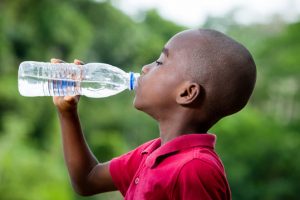The Importance of Hydration for Every Age Group

Inside the ER: What Really Happens in an Emergency Room
May 5, 2025
Diabetes Prevention: 7 Lifestyle Changes That Work
May 5, 2025The Importance of Hydration for Every Age Group

Introduction
Hydration is essential for life. From infants to seniors, water plays a critical role in maintaining bodily functions, promoting mental clarity, and supporting overall health. Yet, many people underestimate the importance of drinking enough water daily. In this article, we explore why staying hydrated matters for every age group and how water needs change throughout life.
Why Hydration Matters
Water makes up approximately 60% of the human body and is involved in nearly every bodily function—from regulating body temperature to cushioning joints and aiding digestion. Even mild dehydration can lead to headaches, fatigue, poor concentration, and reduced physical performance.
Hydration Needs by Age Group
- Infants and Toddlers
- Why it matters: Babies and toddlers have higher water needs relative to their body weight. Dehydration can occur quickly due to fever, diarrhea, or inadequate fluid intake.
- Tips: Breast milk or formula provides the necessary fluids for infants under 6 months. For older babies, small amounts of water can be introduced along with solid foods.
- Children and Adolescents

- Why it matters: Growing bodies require plenty of water for cell development, digestion, and temperature regulation—especially during physical activities.
- Tips: Encourage kids to drink water instead of sugary drinks. Offer water-rich snacks like fruits and vegetables.
- Adults
- Why it matters: Adults need water to maintain energy levels, skin health, cognitive function, and proper kidney function. Lifestyle factors like exercise and caffeine intake can affect hydration needs.
- Tips: Aim for at least 8 cups (2 liters) of water a day, adjusting based on activity level and climate.
- Older Adults and Seniors
- Why it matters: Aging reduces the body’s ability to conserve water, and the sense of thirst may diminish. Seniors are more prone to dehydration, which can lead to serious complications.
- Tips: Set regular reminders to drink water. Include soups, herbal teas, and water-rich foods in the diet.
Signs of Dehydration to Watch For

- Dry mouth or lips
- Dark yellow urine
- Fatigue or dizziness
- Headache
- Confusion (especially in older adults)
Best Ways to Stay Hydrated

- Carry a refillable water bottle
- Start your day with a glass of water
- Eat water-rich foods like cucumbers, watermelon, and oranges
- Limit alcohol and caffeine, which can dehydrate you
- Set reminders if you forget to drink water regularly
Conclusion
Hydration is a lifelong priority. From childhood through old age, staying properly hydrated supports every cell, organ, and system in the body. Make hydration a habit, not an afterthought, and enjoy the many benefits it brings to your health and well-being.

